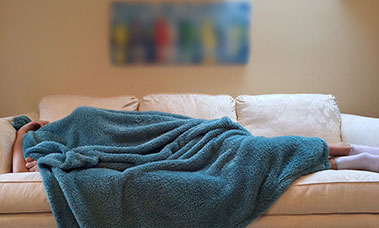Why Napping Restores Body and Mind

Naps are, oddly enough, a slightly controversial thing. Many of us may have memories of Grandpa falling asleep in his chair, or believe that naps are strictly for babies and toddlers. Some may even view adult naps for only the lazy. However, technically speaking, for most folks, it can be extremely beneficial. Napping can raise your alertness, memory and performance. In addition, it can lower stress and blood pressure levels by giving your mind rest and your body healing time.
Keep in mind, however, due to the cycles of sleep and your personal genetic makeup, it’s important to tailor your nap to the duration that most benefits you. Taking a siesta between 1:00-3:00pm for 90-minutes is most beneficial. In this amount of time, your REM sleep is able to run one full cycle.
Best known as the “power nap”, this snooze is no more than a 20-minute sleep. In order to prevent post-nap grogginess, it’s important to wake up at the 20-minute mark before your body slips into a Stage 3 slow wave sleep.
If you’re pressed for time and your day doesn’t seem suited for such a nap, try carving out even 6-7 minutes for some shut eye in a comfortable spot. For some, that might mean reclining a seat in your car during lunch break. For others, just curling up on the couch while your kids work on homework can do the trick.
Reasons why Napping Restores Body and Mind
Napping has several restorative benefits for both the body and mind. Some reasons include:
- Boosts energy and alertness: Napping helps to refresh and recharge the body, which can help increase energy levels and reduce feelings of fatigue.
- Improves mood: A nap can improve mood, reduce stress, and increase feelings of calm and relaxation.
- Enhances cognitive performance: Napping can improve cognitive abilities such as memory, learning, and problem-solving.
- Regulates sleep patterns: Taking a nap can help regulate the body’s sleep patterns, which can improve the quality of nighttime sleep.
- Boosts immune system: Research has shown that napping can help boost the immune system and reduce the risk of illness.
- Reduces stress hormones: A nap can help reduce the levels of stress hormones in the body, which can help reduce feelings of stress and anxiety.
Best recommendations while napping
By following these recommendations, you can maximize the restorative benefits of napping and promote a healthy sleep pattern. Here are some tips for the best nap experience:
- Set a timer: Napping for 20-30 minutes is ideal, but not more than that, to avoid feeling groggy when waking up.
- Create a relaxing environment: Find a quiet, dark, and comfortable place to nap.
- Consider timing: Napping in the early afternoon is the best time for most people, as it does not interfere with nighttime sleep.
- Avoid caffeine and alcohol: Consuming these substances before napping can disrupt sleep quality.
- Use a comfortable sleeping position: Find a comfortable position that supports the neck and back.
- Practice relaxation techniques: Deep breathing, meditation, or progressive muscle relaxation can help calm the mind and promote relaxation before napping.
Always remember to provide yourself with kindness. So, shooting for an earlier bed time of simply 15-minutes each night can aid in daytime sleepiness prevention.









